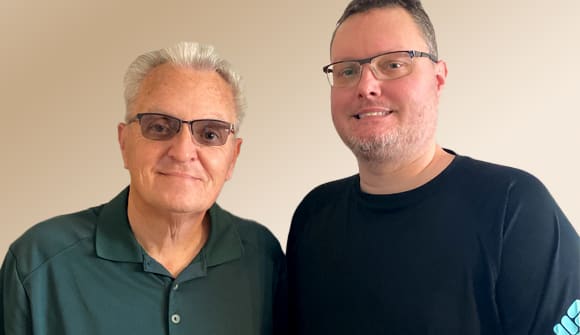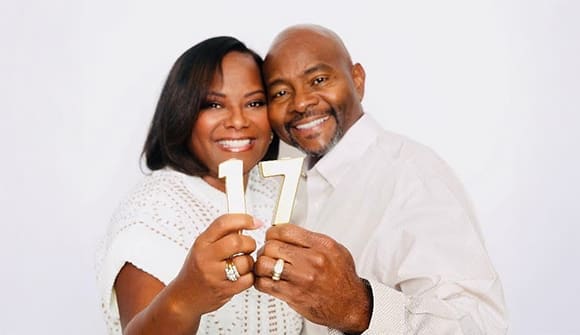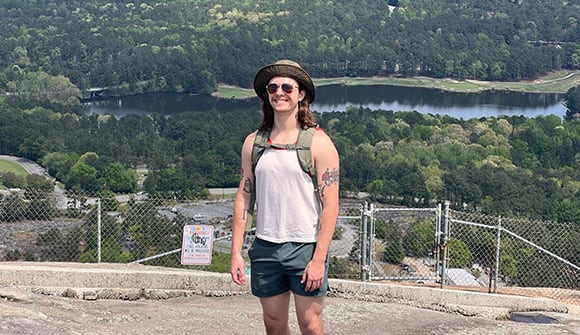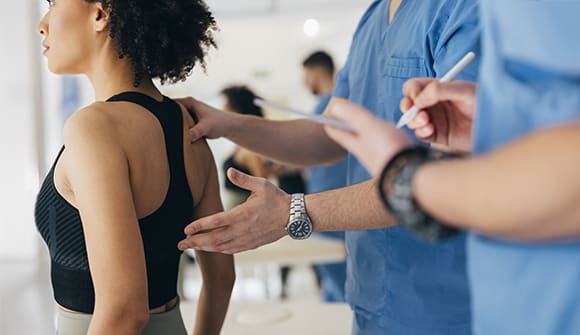Like son, like father
Strokes strike two members of one family.
Article Date:

Fathers and sons can have many shared experiences, and in most cases, it's the father who passes down his wisdom. In the case of Larry Critzer, 69, and his son Jeff, 45, the opposite is true; It was Jeff who taught his parents something.
When Jeff was 43 years old, he had a headache so painful he could barely stay awake, but he pushed through. The next day at work, he wasn't able to compose an email. "I just couldn't put the sentence together. My coworker thought I was joking, but then she really looked at me and said my face was drooping. She realized something was off."
He drove himself (something he said he shouldn't have done, in hindsight) to an urgent care center, where his wife met him and took him to the Emergency Center at Baptist Medical Center South. Jason Day, MD, a vascular neurologist who provides inpatient vascular/stroke care to patients, confirmed the younger Critzer had experienced a stroke, and immediately started treating it.
Knowledge is power
Two years later, Larry Critzer started his day normally – doing his chores and reading his bible. Usually, he does this in one part of the house, while his wife of 50 years, Carol, takes care of her morning routine in another. For some reason, that morning, she went to ask her husband how he was doing. He wasn't responding to her questions.
Larry recalled, "I thought I was answering her, but apparently my speech was garbled and I was talking out of the side of my mouth."
Having learned the signs of stroke from her son's experience, Carol called 911 immediately. Larry was transported to Baptist Medical Center Jacksonville. Nima Aghaebrahim, MD, a neurointerventionalist with Lyerly Neurosurgery at Baptist Health, diagnosed him with a stroke caused by a blockage from a blood clot in his brain. Dr. Nima performed a thrombectomy, which is a minimally invasive procedure to remove the blockage.
'The stroke club'
Both Critzers were lucky they haven't had any major residual effects from their strokes, other than an even stronger bond.
"We say, 'we're in the stroke club,'" said Larry. "It's good to be able to talk about it with someone."
They also have a new mission in life: to help educate others how to identify the signs of a stroke, which include the BE FAST symptoms:
- Balance is off, dizziness, nausea
- Eyesight changes in one or both eyes
- Face droops on one side
- Arm (or leg) weakness or numbness
- Slurred speech
- Time is brain, call 911 immediately. There are time-sensitive treatment options available to reverse the symptoms.
Understanding the leading factors that could cause strokes is also important. These include:
- Alcohol abuse
- Atrial fibrillation (Afib)
- Carotid artery disease
- Diabetes
- Family history of stroke
- High blood pressure and/or cholesterol
- Lack of physical activity
- Obesity
- Smoking
A family history of risk factors played a part in both Critzers' propensity for a stroke. Though this was Jeff's first major medical event, doctors said his previously undiagnosed high cholesterol and high blood pressure could have contributed. Larry had a history of cardiac disease with multiple events, and both men have Type 2 diabetes.
Both Critzers know there is a chance of having another stroke, so they are vigilant in visiting their doctors, managing their diabetes, exercising and watching their diets.
Larry Critzer said, "My primary care physician, Perry Carlos, DO, calls me 'Nine Lives' because I keep bouncing back. My best advice for everyone is to look out for each other. Know the risks and signs of stroke, and check on your loved ones."
Stroke is a leading cause of death and major cause of serious disability in the U.S. If someone you know is experiencing stroke symptoms, call 911. Baptist Health's Stroke & Cerebrovascular Center can help coordinate care and treatments for all types of stroke. To request an appointment, call 904.861.0316.



